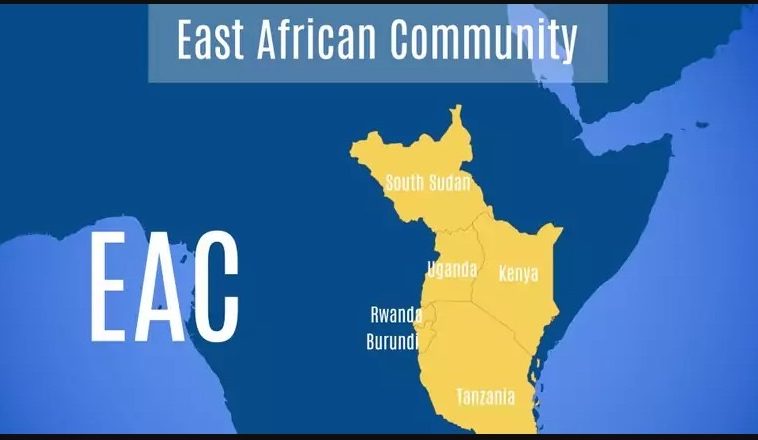This discussion alluded to a contentious debate during the recently finished Cop 28 climate summit held in Dubai, United Arab Emirates, from November 30 to December 12, 2023. The conference is a forum for states to discuss mitigating and preparing for climate change in the future.
At this meeting, leaders expressed their opinions on whether or not fossil fuels should be removed from the African continent. The UNFCC reports that participants in the event came from all across the world, with the main takeaway being that the era of fossil fuels is ending. A choice that set the stage for an expeditious, fair, and just transition supported by significant reductions in emissions and increased funding. The ultimate objective was to achieve a maximum global temperature of 1.5 degrees Celsius.
Meanwhile, on December 12, 2015, in Paris, France, 196 parties adopted the Paris Agreement, which was agreed upon during COP 21. Later, on November 16, 2016, it became operative. The United Nations stated that the main objective of this agreement was to bolster the international response to the threat posed by climate change. This is particularly relevant since it looked at strategies to keep the increase in global temperature well below 2 degrees Celsius over pre-industrial levels.
Rewinding to Cop 28, the stocktake showed that, compared to 2019 levels, global greenhouse gas emissions must be reduced by 43% by 2030. This action aims to keep global warming to 1.5 degrees Celsius, but it also serves as further evidence that the nations present at COP 28 are falling short of their targets outlined in the Paris Agreement.
For this reason, the stocktake is now urging the 200 participating parties to take steps to achieve, by 2030, a doubling of energy efficiency gains and a tripling of renewable energy capacity worldwide. Along with phasing out inefficient fossil fuel subsidies and other measures that promote the just, orderly, and equitable transition away from fossil fuels in energy systems, developed countries continue to lead the way in accelerating efforts towards the phase-down of unabated coal power. In the short term, Parties were urged to propose in their upcoming round of climate action plans (also known as nationally determined contributions) aggressive, economy-wide emission reduction targets that covered all greenhouse gases, sectors, and categories and were in line with the 1.5°C limit by 2025.
Now the tricky question is… Can the African economy survive without fossil fuels?
We elect our leaders to represent us at tables where such conversations are brought up. When it was brought up, different leaders reacted differently to this statement. Below is what some of them had to say.
By 2030, Kenya intends to completely transition from fossil fuels to renewable energy sources, according to President William Samoei Ruto. According to him, Africa can lead the global shift to renewable energy use. President Ruto stated that Kenya has already reduced its investments in fossil fuels and that the East African nation currently lacks fossil fuel resources while appearing on one of the major international media outlets. He stated that petroleum imports from anywhere else are all gone now. However, the nation is launching a massive e-mobility initiative to ensure that it can use renewable energy for all forms of transportation.
In an interview, he said he was determined to see Kenya utterly green by 2030.
On the other hand, Yoweri Museveni, his counterpart, took issue with his assertion that, given Europe’s current energy crisis, Africa should be permitted to continue using fossil fuels to meet development needs and lift its people out of poverty. President Museveni told the public this year that although Europeans advise Africans to switch from fossil fuels to renewable energy sources like solar and wind power, they are already tearing down wind farms to create room for open-pit coal mining.
Exploiting oil from the Albertine region and pipelining it to the coast through Tanzania has proven difficult for Uganda. The project was asked to be halted by the European Parliament, which claimed that the pipeline would seriously harm the local population and ecology. According to the President, alternative energy sources are unreliable and would cause unemployment by denying millions of Africans access to electricity for their companies.
On his part, President Cyril Ramaphosa agrees with President Ruto’s remarks. He believes South Africa must move quickly and ambitiously to reduce greenhouse gas emissions and transition to a low-carbon economy. The state president notes that several of his peers’ nations have already started phasing out fossil fuels. He says, however, that a transition can only be effective if widespread support for an equitable transition takes everyone to net zero.
According to an article he wrote for the Financial Times, the requirements of workers and communities in industries and regions that such a shift would harm must be carefully considered. To ensure that workers are the primary beneficiaries of our transition to a greener future, organised labour, businesses, and the government must implement reskilling programmes, employment, compensation for lost livelihoods, and other forms of support.
However, Sultan Al Jaber, the President of Cop28, has stated that “no science” supports the idea that fossil fuels must be phased out to keep global warming to 1.5C, according to a Guardian report. Al Jaber added that sustainable growth would not be possible if fossil fuels were phased out “unless you want to take the world back into caves.” Scientists described the remarks as “extremely concerning” and “verging on climate denial,” noting that they contradicted UN Secretary-General António Guterres’ stance.
Based on these and numerous other perspectives from African leaders, this debate about whether or not the continent can exist without fossil fuels requires a rigorous examination. There has been an impact on fossil fuels since independence. This has allowed the continent to use it for several programs. For example, it powers innumerable daily activities and is utilised to make millions of items. The National Academies of Sciences further agree with this statement.
And that is why determining if the African economy can function without fossil fuels will be challenging. Guided by the President’s recent statements on COP 28, there seems to be a huge test.
Meanwhile, a new analysis of the energy generation environment in Africa analyses the pipeline of over 2,500 planned power plants and their prospects of successful commissioning using cutting-edge machine-learning techniques.
According to the report, although this varies by region, the proportion of Africa’s electricity output from non-hydro renewables is expected to stay below 10% in 2030. Others argue that Africa may thrive without fossil fuels, but it may take some time to do away with them, as the continent requires time to learn new things or phase out old cultures. But it will be essential to take a step back and consider if Africa can survive without relying on fossil fuels.
This will include taking a step back and reevaluating how to proceed. It might also necessitate working together, particularly with the leaders with the authority to make specific choices. The ball is currently in the hands of the African countries while they wait for feedback.


